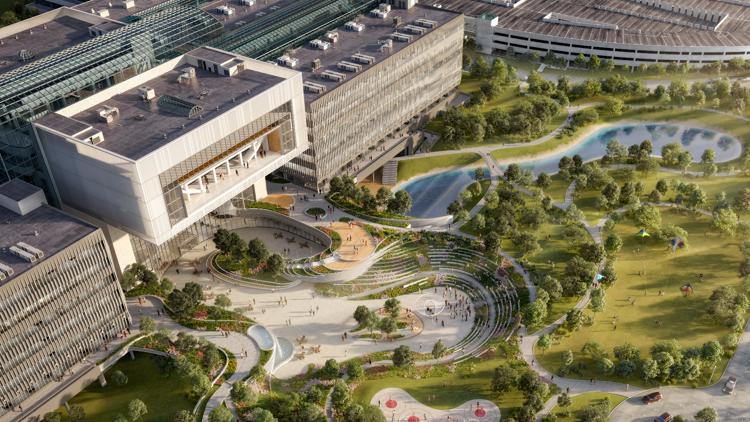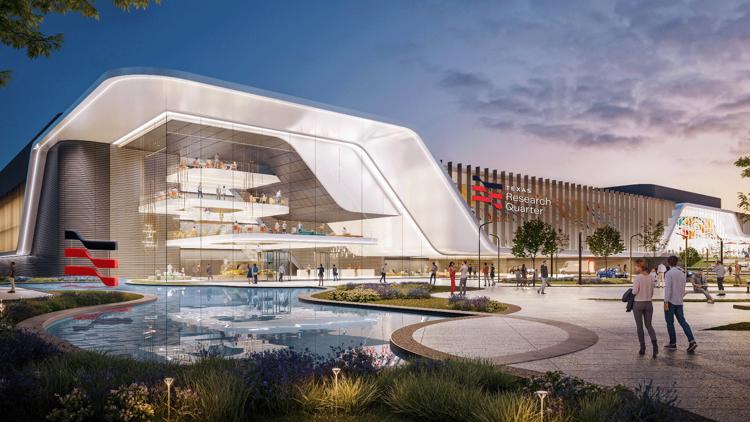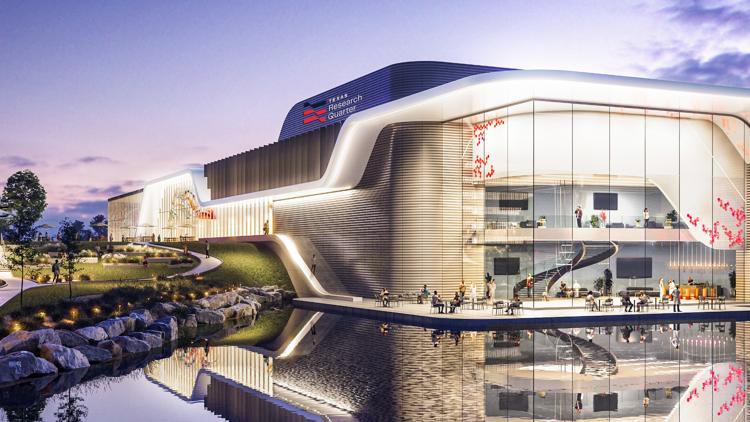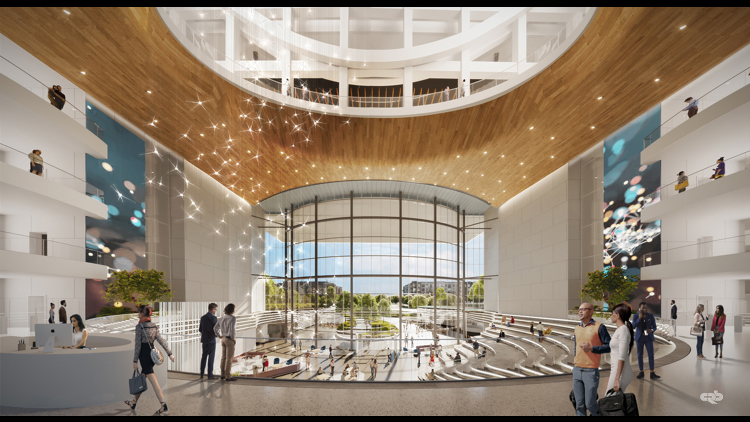The $4 billion project is expected to create 30,000 jobs in Plano.
PLANO, Texas — This article was originally published by our content partners at the Dallas Business Journal. You can read the original article here.
Plano City Council approved an economic development agreement between NexPoint and the city for the first phase of a forthcoming life sciences hub, located at the former Electronic Data Systems’ campus.
In its Aug. 26 meeting, council members unanimously voted to allow up to $15 million to support the $4 billion life sciences complex. It is expected to redevelop and breathe new life into an area in Plano’s Legacy, which was one the headquarters of Ross Perot’s information technology company, EDS.
Phase one of the 91-acre campus, dubbed the Texas Research Quarter as of May 2023, includes converting most of the main building and constructing a new pharmaceutical manufacturing facility. Dallas-based development company NexPoint Development Company LP acquired the site in 2018.
Plano’s latest development agreement marks the next step in advancing the huge project to the finish line. It establishes a tax increment reinvestment zone, or TIRZ, for phase one of the project. The city has also agreed to contribute 65% of the property taxes levied on the site, not to exceed $15 million overall. Additionally, the agreement outlines that funds reimbursing development costs will be distributed over the next 25 years.
Getting city council’s approval is a “critical first step” in order to make the project happen, said Eric Danielson, NexPoint’s managing director and head of real estate development, at a “Future of DFW Life Sciences” summit held Aug. 27 in Plano. He noted that life sciences spaces are typically expensive, high-profile projects.
“Which is why we needed to have the city step in with us and that public-private partnership, so we’re very, very happy that we got that across the finish line just to get us to the start line,” Danielson said.
He added construction on the initial phase will likely start toward the end of 2024 and will be ready for occupants by the beginning of 2026.
Texas Research Quarter
The city’s planning and zoning commission unanimously approved the multi-use project in mid July 2023. At the time, it was anticipated to create 30,000 jobs at full build-out. A tenant could employ anywhere from 200 to 1,000 people, depending on the manufacturing process, said Lucy Bannon, chief communications officer with NexPoint.
“The facility is also designed with the flexibility to accommodate a range of life science manufacturing, so that adds to the variability [of jobs],” Bannon said in an email.
She added that phase one of the project is expected to bring a “significant number of high-paying advanced manufacturing jobs.” Many of these jobs don’t require traditional college degrees.
With this biomedical research campus, the city hopes to attract public and private partnerships, improve educational opportunities and “drive long-term economic impact in the Plano community and surrounding area.” According to a study conducted by Waco-based economic consultant The Perryman Group, the project is expected to generate nearly $2.9 billion in gross product and 30,124 job-years of employment in Plano.
The TRQ, first announced by NexPoint in Feb. 2023, plans to encompass more than four million square feet of research and development space, lab space and manufacturing facilities. Additionally, the space is designed to accommodate “a broad range of life science companies.” Other mixed-use amenities are also planned for the site, including hotel and retail space.
NexPoint also hopes to attract life sciences companies from out of state, including Boston, San Francisco and North Carolina. The TRQ aims to provide space to startups that come out of UT Southwestern and other research universities once they eventually outgrow their incubator offices at Pegasus Park. UT Southwestern Medical Center and Children’s Health announced plans earlier this year to build a $5 billion pediatric health campus.
Furthermore, the hub, at 5400 Legacy Dr., is located in Plano’s Legacy business park and is within walking distance of The Shops at Legacy. Part of the newly established TIRZ includes parts of the Legacy neighborhood.
The redevelopment project comes as several North Texas cities have focused their efforts on becoming a hotspot for life sciences and medicine. Dallas County Health and Human Services also has plans to move into a new, three-story $52 million laboratory by August 2025. Most recently, a life science company from California announced plans to move its headquarters to Dallas, signaling a shift in attitudes toward Dallas’ potential to become a renowned medical and biotech hub.
The city of Plano is also considered highly favorable to become such a hub due to its talented workforce, business-friendly environment and national and global connectivity, according to a city document.
“As the life sciences industry continues to expand in the region, we are confident that the Texas Research Quarter will emerge as a pivotal center, further solidifying the metroplex’s reputation as the ‘Third Coast’ for biotechnology research and manufacturing,” Doug McDonald, Plano’s director of economic development, said in a statement.







